Hypothyroidism is a disease of the thyroid gland, which is one of the stages of a generalized attack of the immune system on the body of the gland. Sometimes the disease proceeds in a monophase, not passing into other pathologies. One of the methods for diagnosing hypothyroidism are laboratory blood tests for the concentration of hormones in it.
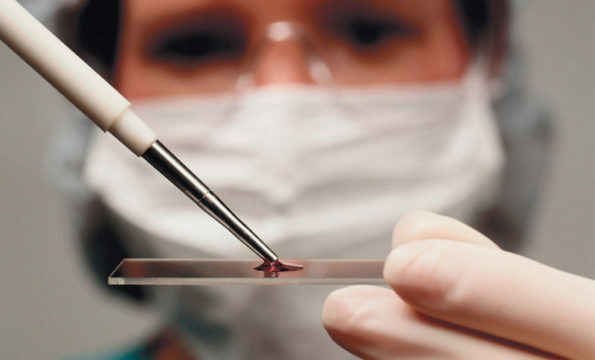
Symptoms of
Hypothyroidism may not manifest itself for a long time and only in a neglected case can a vivid clinical picture be displayed. The greatest influence on the final diagnosis is precisely the tests for hypothyroidism.
Among the pronounced clinical picture of hypothyroidism, it should be noted:
- Weakness, lethargy;
- Absence of all that is happening;
- Rapid fatigue, reduced performance;
- Drowsiness;
- Scattering, bad memory;
- Swelling of the hands, feet;
- Dry skin, brittle nails, hair.
All this - the consequences of a lack of thyroid hormones in the thyroid gland in the body. In addition to laboratory diagnosis, an ultrasound examination of the gland is assigned, and a biopsy can also be prescribed for suspected malignant nodal formations. Let us consider in more detail what the tests show for hypothyroidism.
Thyroid-stimulating hormone
Most endocrinologists rely on the level of thyroid-stimulating hormone in the patient's blood, or TSH.This hormone is produced by the pituitary gland and is designed to stimulate the thyroid gland.
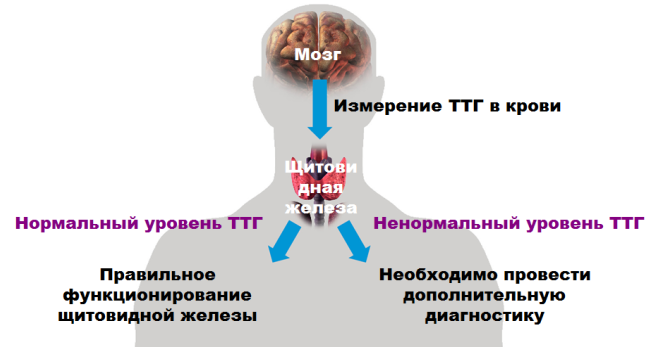
With a high level of such a hormone in the blood, it can be concluded that the pituitary gland is working on activating the gland, respectively, the body lacks thyroid hormones.
Norms of thyroid-stimulating hormone content vary in different countries. The range is as follows:
- For Russia, the normal TSH level in the patient's blood varies between 0.4-4.0 mIU / L.
- American endocrinologists have adopted a new range, according to the results of their studies, responding to a more real picture - 0.3-3.0 mIU / L.
Earlier the TSH range was normally 0.5-5.0 mIU / L - this indicator was changed to the first 15 years ago, which led to an increase in diagnosing thyroid abnormalities.
In our region, it is worth the first indicator. TTG above four mIU / l speaks about hypothyroidism, and below - hyperthyroidism.
On the other hand, the concentration of TSH depends on many other factors. For example, low concentrations of thyroid-stimulating hormone are observed in oncological diseases of the pituitary gland, since it is not able to produce hormones. A similar pattern is observed after a stroke or injury that affects the hypothalamus.
A large effect on the result of the research has a blood sampling time. Early in the morning the level of TSH in the blood is averaged, it decreases for lunch, and by the evening again rises above the middle range.
T4
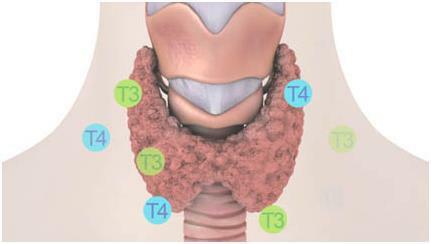
The hormone T4 can be tested in the following forms:
- Total T4 is the concentration of bound and free forms of the hormone T4;
- Free is a hormone not associated with a protein molecule, and is available for use in the body;
- Bound is the concentration of the hormone T4, which is already bound by a protein molecule and can not be used by the body. Most of the T4 in the body is in a bound state.
Complex laboratory diagnostics of hypothyroidism can not be based only on concentration studies, since it illuminates the problem only on one side - how much the brain stimulates the thyroid gland. For a full study, tests for free forms of hormones T3 and T4 are prescribed.
General T4 is directly dependent on the associated T4.But recently, less attention has been paid to him, since the binding of T4 by a protein molecule also depends on the amount of protein in the blood. And since the protein concentration may increase in renal and hepatic diseases, during pregnancy and lactation, the measurement of total T4 is not always quite effective.
More attention is given to free T4 - it is a form of a hormone that must later penetrate into cells and transform into T3.The latter is an active form of the hormone of the thyroid gland.
If free T4 - a thyroxine - below norm or rate, that the TTG is raised, the picture really pushes the endocrinologist on a hypothyrosis. These indicators are often considered in a bundle.
T3
As mentioned above, T3 is formed in the cells of the body from T4.This hormone is called triothyronine and is an active acting form of the hormone of the thyroid gland.
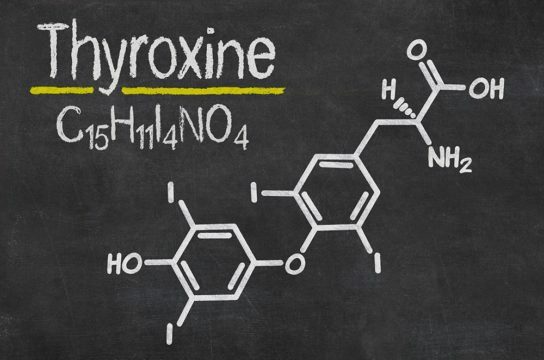
As in the case of T4, the general, free and bound forms of triiodothyronine are examined. General T3 is not an accurate indicator of hypothyroidism, but can complement the diagnostic picture.
T3 is more important for diagnosis, although hypothyroidism often maintains it in the normal range. This is due to the fact that even with thyroxine deficiency, the body produces more enzymes that transform T4 into T3, and therefore residual concentrations of thyroxine are converted to triiodothyronine, maintaining the T3 level in the norm.
AT-TPO
Any disease in the body caused by an infection, a bacterium or a virus, causes an instant response of the immune system in the form of secretion of antibodies that must destroy the foreign body - the cause of the disease.
When the disease is autoimmune hypothyroidism, the immune system somewhat incorrectly identifies the pathogen, afflicting antibodies to the human thyroid gland.
In the process of autoimmune attack on the gland specific and nonspecific antibodies are produced. Specific - antibodies to thyroid peroxidase, they are also AT-TPO.
Such antibodies attack the cells of the gland, destroying them. Since the cells have a follicle structure, after their destruction the membranes get into the blood. The immune system detects in the blood foreign bodies - membranes - determines their source and again begins an attack - thus, the development of AT-TPO occurs in a circle.
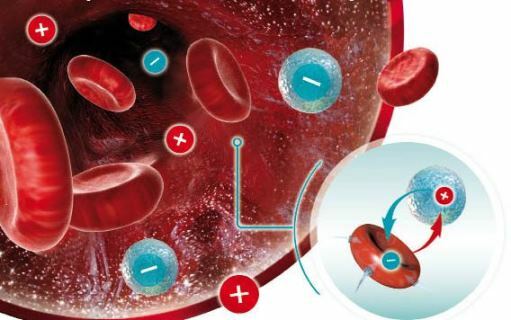
To determine these antibodies in the blood is simple enough, and they become the gold standard for diagnosing autoimmune thyroiditis. If the test results show an increased amount of AT-TPO in the blood, it is likely that hypothyroidism is one of the stages of thyroiditis, and this stage can last for years.
Other indicators of
These indicators are complex and are often checked together, and when decoded, they are associated with each other. In addition, the doctor can prescribe an immunogram, a biopsy of the gland and a general urine test.
- The general analysis of urine remains without deviation from the norm.
- Immunogram shows a decrease in the concentration of T-lymphocytes below normal limits, an increase in the concentration of immunoglobulins, a similar picture and with biopsy - in the cells of the gland is a lot of antibodies.
- A general blood test - shows an increase in the rate of erythrocyte sedimentation, relative lymphocytosis - a decrease in the number of lymphocytes.
- A study on biochemistry shows a decrease in the albumin fraction of the protein, an increase in the concentration of triglycerides and cholesterol, globulins and low-density lipoproteins.
The decoding of the results of laboratory diagnostics is handled by an endocrinologist who directs this study. Any laboratory does not take responsibility for self-treatment of patients, since the results of tests for hypothyroidism, even if the picture described above coincide with the received one, is not a clinical diagnosis, but only a help for it.



